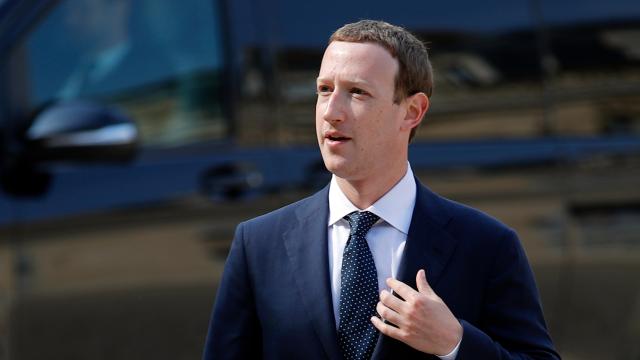The attorney general for the District of Columbia may have obtained internal company emails showing that Facebook had knowledge of Cambridge Analytica’s data-harvesting efforts months sooner than CEO Mark Zuckerberg let on last year.
But the company is now in court arguing to keep the emails under seal, saying the firm’s data-scrapping is unrelated to that other breach of privacy for which it faced criticism for more than a year.
In a court filing this week, attorneys for the District said they were possession of emails that showed Facebook employees based in Washington, DC, “played a leading role in responding to how third-party applications improperly sold consumer data to Cambridge Analytica (and other parties) in violation of Facebook’s policies”.
The filing, which is partially redacted, also says emails show a Facebook employee “warned the company” about Cambridge Analytica’s “data-scraping practices” in September 2015, roughly three months before The Guardian reported that the firm had acquired data on millions of Facebook users without their consent.
In a statement last year on Facebook, Zuckerberg claimed that his company first learned about Cambridge Analytica’s unauthorised collection of user data in December 2015, after The Guardian broke the story.
Facebook is now claiming that the conversation about Cambridge Analytica in the emails is unrelated to the data it illicitly obtained from Aleksandr Kogan, a Cambridge University researcher who initially acquired it through a personality quiz he operated on the platform.
(The quiz, installed by around 300,000 people, enabled Kogan to collect not only their data but data on roughly 50 million other Facebook users.)
“In September 2015 employees heard speculation that Cambridge Analytica was scraping data, something that is unfortunately common for any internet service,” a Facebook spokesperson said in a statement to the press. “In December 2015, we first learned through media reports that Kogan sold data to Cambridge Analytica, and we took action. Those were two different things.”
Facebook is being sued in DC over what its attorney general, Karl A. Racine, says were misleading privacy policies during the 2016 US election in violation of the District’s Consumer Protection Procedures Act. Attorneys for the District say that nearly half of all DC residents were swept up in the illicit sale of Facebook data.
Facebook this week filed a motion in the DC superior court to keep its internal emails from going public, arguing that the District’s complaint against the company lacks personal jurisdiction and that the document itself contains sensitive commercial information.
Attorneys for the District argue that there’s nothing sensitive about the document, that the information it contains is already publicly known, and that Facebook’s concerns are “ultimately reputational”.
They also contest Facebook’s argument that the emails are “divorced from the factual allegations in the complaint”, saying that they illustrate how Facebook employees based in the District “played a leading role” in responding to the privacy scandal.
Moreover, the emails are consistent, the lawyers said, with the DC attorney general’s allegation that Facebook employees embedded within multiple president campaigns “knew, or should have known” that Facebook’s user data was being harvested by Cambridge Analytica, “among other parties”.
Senator Ted Cruz’s US presidential campaign largely funded the development of Cambridge Analytica’s campaign software, Ripon, paying the firm at least $US5.8 million ($8.2 million). After then-candidate Donald Trump was nominated to be the Republican candidate, the Trump campaign gave the firm an additional $US5 million ($7 million).
As Gizmodo first reported last year, Cambridge Analytica outsourced the development of its software to AggregateIQ, a British Columbia-based data firm. Multiple GOP operatives consider Ripon to be vaporware. Sources inside the Cruz campaign told Gizmodo that it never functioned.
Cambridge Analytica’s principal investor, hedge-fund billionaire Robert Mercer, contributed roughly $US10 million ($14 million) toward the Cruz campaign prior to Trump’s nomination. He also contributed around $US15.5 million ($21.9 million) to Trump.
Attorneys for Facebook and the District appeared before Judge Fern Saddler at 3:00PM local time on Friday to argue their pending motions. Saddler is expected to issue a written ruling soon, which determine whether Facebook’s internal emails are admissible.
